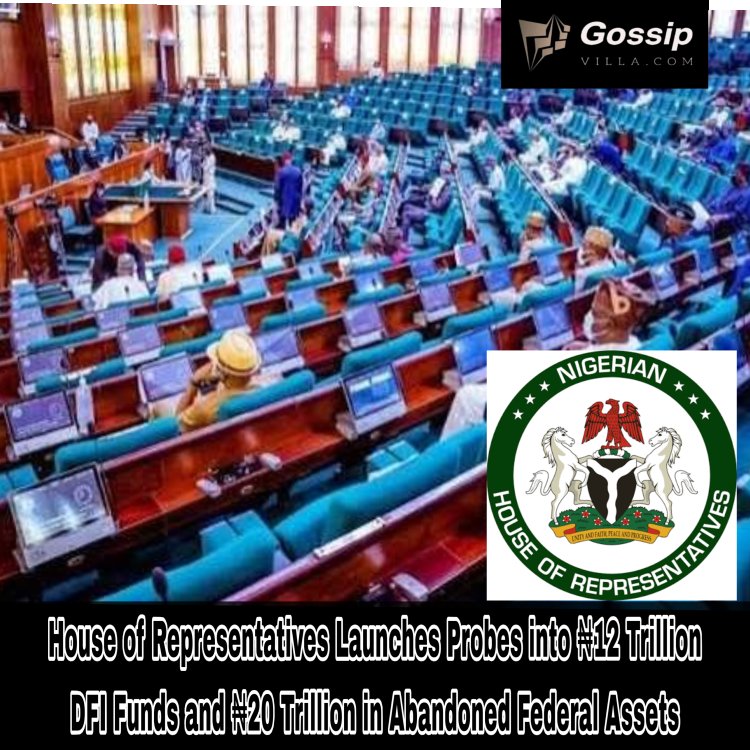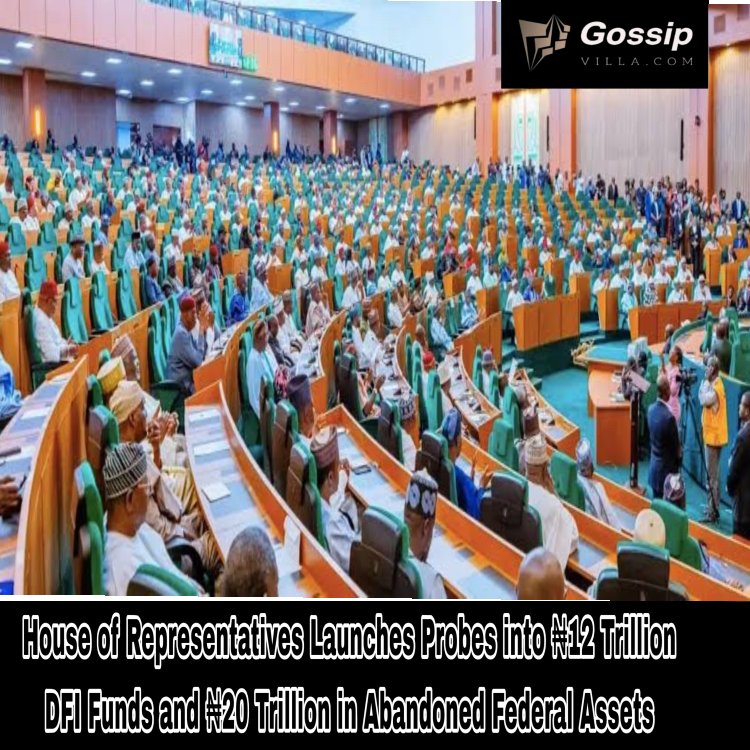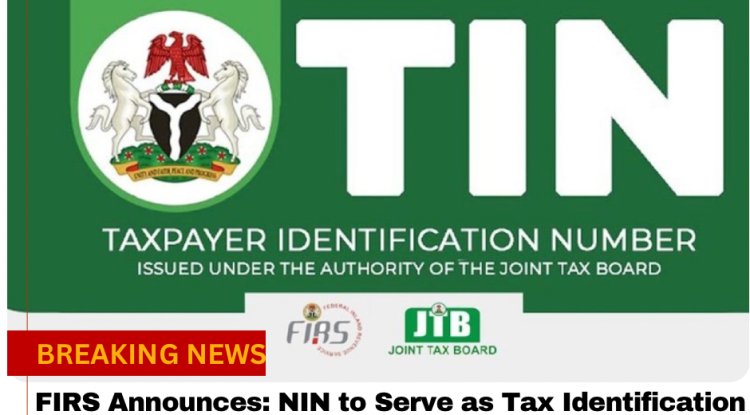House of Representatives Launches Probes into ₦12 Trillion DFI Funds and ₦20 Trillion in Abandoned Federal Assets
Nigeria’s House of Representatives launches probes into over ₦12 trillion disbursed to DFIs in 7 years and ₦20 trillion worth of abandoned federal properties nationwide.

House of Representatives Launches Probes into ₦12 Trillion DFI Funds and ₦20 Trillion in Abandoned Federal Assets
The House of Representatives has inaugurated an ad-hoc committee to investigate the disbursement and utilisation of over ₦12 trillion allocated to Nigeria’s key Development Finance Institutions (DFIs) over the past seven years. In a separate resolution, the House mandated another ad-hoc committee to probe abandoned federal government-owned properties and incomplete projects valued at more than ₦20 trillion across the country.
The dual investigations, initiated on November 12, 2025, underscore the 10th Assembly’s commitment to enhancing transparency, accountability, and efficient management of public resources amid persistent economic challenges.

Probe into ₦12 Trillion Allocated to Development Finance Institutions
The ad-hoc committee, chaired by Hon. Chidi Mark Obetta (PDP, Enugu), is tasked with examining the operations, funding mechanisms, and performance of major DFIs, including the Bank of Industry (BOI), Bank of Agriculture (BOA), Nigeria Export-Import Bank (NEXIM), Development Bank of Nigeria (DBN), Nigeria Incentive-Based Risk Sharing System for Agricultural Lending (NIRSAL), and the Infrastructure Bank.
According to Tribuner reports indicate that inflows to these institutions comprising government capital injections, budgetary appropriations, bond issuances, concessional loans, and donor funding exceeded ₦12 trillion between 2018 and 2025. Despite these substantial resources, concerns have been raised over limited impacts on job creation, industrial growth, agricultural development, export promotion, and poverty reduction.
During the committee’s inauguration, Speaker Tajudeen Abbas, represented by Deputy House Leader Hon. Halims Abdullahi, criticised the DFIs’ underperformance, stating that future budgetary allocations would be contingent on demonstrated accountability and measurable economic contributions. Abbas highlighted issues such as lack of transparency, political interference, and insufficient innovation as key factors hindering effectiveness.
Committee Chairman Obetta described the inquiry as “reform-oriented rather than punitive,” emphasising an evidence-based approach involving stakeholders like the Central Bank of Nigeria (CBN), Federal Ministry of Finance, development partners, and programme beneficiaries. Representatives from the CBN and NEXIM pledged full cooperation, with the committee expected to recommend reforms to bolster the DFIs’ role in fostering inclusive growth.
Investigation into Over ₦20 Trillion in Abandoned Federal Properties
In a related development, the House adopted a motion sponsored by Minority Leader Hon. Kingsley Chinda (PDP, Rivers) urging a comprehensive probe into abandoned federal government properties and buildings nationwide.
Citing a 2021 survey by the Nigerian Institute of Quantity Surveyors, Chinda noted that approximately 11,866 federal projects representing about 63% of initiatives since independence remain abandoned, with an estimated value surpassing ₦20 trillion. Prominent examples include the Federal Secretariat Complex in Ikoyi, Lagos; the Millennium Tower and National Library in Abuja; the NIPOST and FIRS headquarters; the Nigerian International Hotel in Suleja, Niger State; the Nigerian Newsprint Manufacturing Company in Kaduna; and the Kaduna Textile Building. (Premium times)
The motion highlighted systemic problems such as poor project planning, funding discontinuities between administrations, vandalism, and oversight lapses, leading to significant resource wastage. The ad-hoc committee is mandated to verify the properties’ status, assess recovery options – including completion, privatisation, or revitalisation and report findings within weeks. Proponents argue that reclaiming these assets could generate revenue, create employment, and alleviate infrastructure deficits.
READ MORE ON : Senate, Reps Begin Review to Create 55 New States and 278 Local Councils Nationwide
Broader Implications
These probes collectively address potential mismanagement of over ₦32 trillion in public funds and assets at a time when Nigeria faces high debt levels, inflation, and infrastructure gaps. Lawmakers and observers view the exercises as critical steps toward fiscal responsibility and sustainable development.
As the committees begin their work, stakeholders anticipate transparent proceedings and policy recommendations that could reshape public finance management in Africa’s most populous nation.
What's Your Reaction?




















